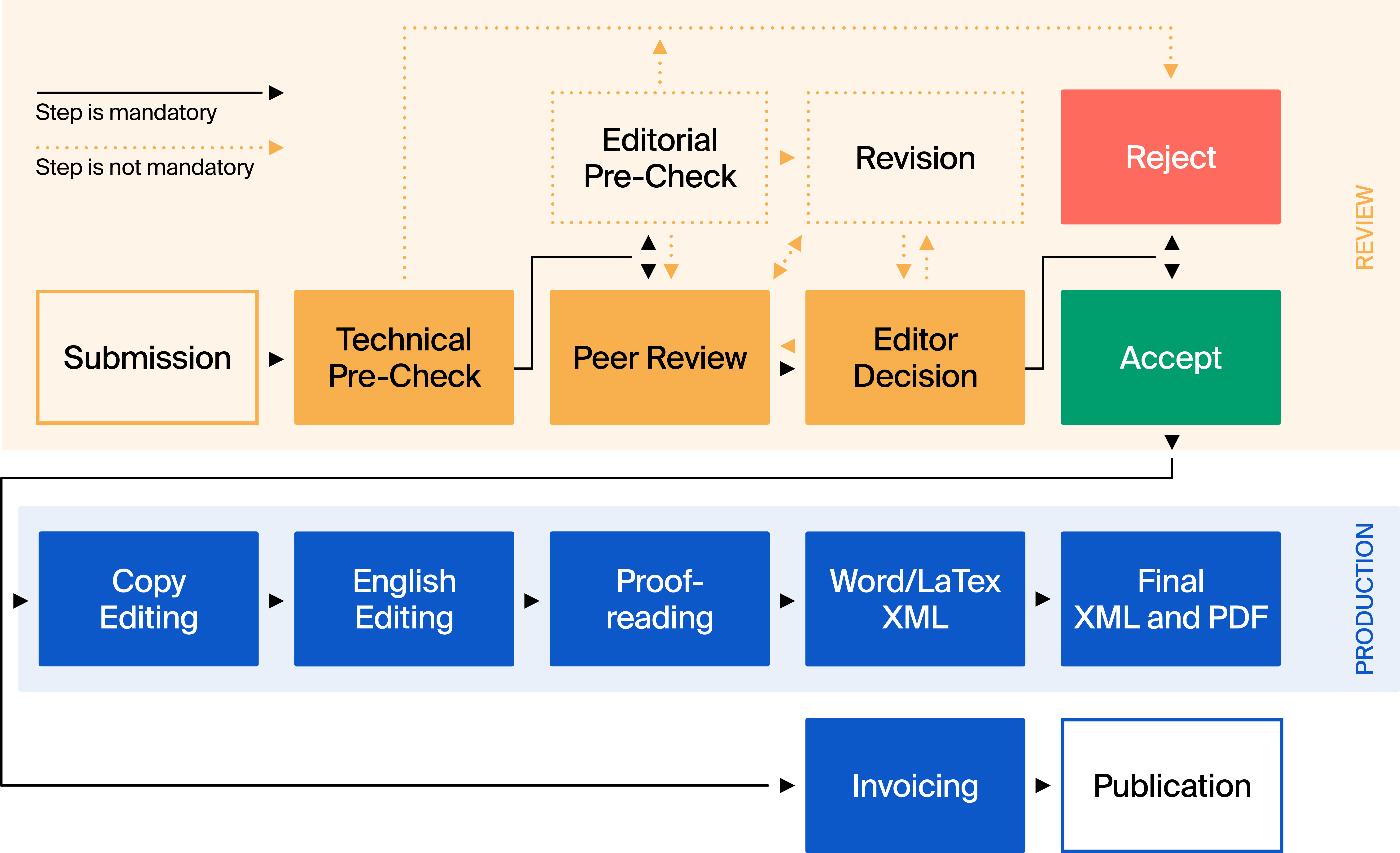
Reviewer Guide
Peer review is an essential aspect of the publication process, as it ensures that InJEBA maintains the highest quality standards for published manuscripts. All manuscripts submitted to our journal will undergo a rigorous and thorough expert review.
After submission, the Managing Editor of the journal will conduct an initial technical review of the manuscript. Upon submission, the academic editor will be notified and invited to conduct an initial editorial check and recommend reviewers. Depending on the outcome of the initial check, revisions may be requested or the manuscript may be rejected prior to peer review. If the manuscript proceeds to peer review, the Editorial Office will organize the process, which will be conducted by independent experts. At least two review reports will be collected per manuscript. Authors are kindly requested to make any necessary revisions, including a second round of peer review if deemed necessary, prior to the final decision being made. The final decision is made by the academic editor, who is typically the Editor-in-Chief or a member of the Board of Editors of the journal, or the Guest Editor for special issues. Once accepted, manuscripts are edited and proofread in English internally.
InJEBA Editorial Process :
InJEBA implements a peer review process that is both rigorous and transparent, handled by researchers and scholars to ensure the highest quality.
Our belief is that peer review should be efficient, rigorous, and fair.
For most InJEBA journals, peer review is a single-blind assessment with at least two independent reviewers, followed by a final acceptance/rejection decision by the Editor-in-Chief or another academic editor approved by the Editor-in-Chief. This involves making decisions on acceptance, approving external editors, and choosing topics for article collections such as Special Editions, Topics, and Topic Collections. Furthermore, the Editor-in-Chief is accountable for appointing new members to the Editorial Board.
The role of the Editor-in-Chief is to maintain the academic standards of the publication process. The flow chart presented below offers an overview of the editorial process.

Pre-Check
The pre-screening stage consists of two main steps.
The first step involves a technical pre-screening conducted by the Editorial Office immediately after the manuscript is submitted. The second step involves a peer review process.
This pre-screening assesses the manuscript's overall suitability for the journal/section/ISSN/Topic/Collection of Topics, adherence to high quality research and ethical standards, and the standard of rigor required to qualify for further review.
Academic editors, including the Editor-in-Chief for regular manuscripts, Guest Editors for special issue manuscripts, Topic Editors for Topic manuscripts, Collections Editors for Topical Collections manuscripts, and members of the Board of Editors for conflict-of-interest manuscripts and regular manuscripts if the Editor-in-Chief permits, will be informed of the submitted manuscript and requested to conduct an editorial pre-check. During the editorial pre-screening stage, the academic editor will evaluate the submission's suitability for the journal's scope and the manuscript's scientific soundness. This includes assessing the relevance of references and appropriateness of the methodology used. Depending on the outcome of the evaluation, the academic editor may reject the manuscript, request revisions before peer review, or proceed with peer review and recommend suitable reviewers.
For special issues, decisions regarding submitted manuscripts cannot be made by Topic Editors and Topic Collection Editors due to a conflict of interest. Instead, a member of the Editorial Board will be responsible for making the decision. Guest Editors, Topic Editors, and Collection Editors will not have access to the review process except in their role as authors. It is important to note that the review process of manuscripts is not accessible to the Editor-in-Chief or other members of the Editorial Board, unless they are acting in the capacity of authors.













